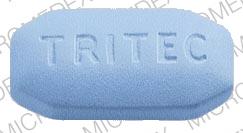Ranitidine bismuth citrate Interactions
There are 140 drugs known to interact with ranitidine bismuth citrate, along with 3 disease interactions, and 1 alcohol/food interaction. Of the total drug interactions, 13 are major, 67 are moderate, and 60 are minor.
- View all 140 medications that may interact with ranitidine bismuth citrate
- View ranitidine bismuth citrate alcohol/food interactions (1)
- View ranitidine bismuth citrate disease interactions (3)
Most frequently checked interactions
View interaction reports for ranitidine bismuth citrate and the medicines listed below.
- Abilify (aripiprazole)
- Acetylsalicylic Acid (aspirin)
- Aspirin Low Strength (aspirin)
- Augmentin (amoxicillin / clavulanate)
- Baricon (barium sulfate)
- Calcium 600 D (calcium / vitamin d)
- CoQ10 (ubiquinone)
- Crestor (rosuvastatin)
- Cymbalta (duloxetine)
- Dexamethasone Intensol (dexamethasone)
- Dextran 40 (dextran, low molecular weight)
- Dextran 70 6% in 0.9% Sodium Chloride (dextran, high molecular weight)
- Epogen (epoetin alfa)
- Flovent HFA (fluticasone)
- L-Arginine (arginine)
- Lyrica (pregabalin)
- Metoprolol Succinate ER (metoprolol)
- Metoprolol Tartrate (metoprolol)
- Neurontin (gabapentin)
- Omega-3 (omega-3 polyunsaturated fatty acids)
- Synthroid (levothyroxine)
- Vitamin B12 (cyanocobalamin)
- Vitamin B2 (riboflavin)
- Vitamin B6 (pyridoxine)
- Vitamin C (ascorbic acid)
- Vitamin D2 (ergocalciferol)
- Vitamin D3 (cholecalciferol)
- Wellbutrin XL (bupropion)
- Xarelto (rivaroxaban)
- Zinc (zinc sulfate)
Ranitidine bismuth citrate alcohol/food interactions
There is 1 alcohol/food interaction with ranitidine bismuth citrate.
Ranitidine bismuth citrate disease interactions
There are 3 disease interactions with ranitidine bismuth citrate which include:
More about ranitidine bismuth citrate
Related treatment guides
Drug Interaction Classification
| Highly clinically significant. Avoid combinations; the risk of the interaction outweighs the benefit. | |
| Moderately clinically significant. Usually avoid combinations; use it only under special circumstances. | |
| Minimally clinically significant. Minimize risk; assess risk and consider an alternative drug, take steps to circumvent the interaction risk and/or institute a monitoring plan. | |
| No interaction information available. |
See also:
Further information
Always consult your healthcare provider to ensure the information displayed on this page applies to your personal circumstances.


